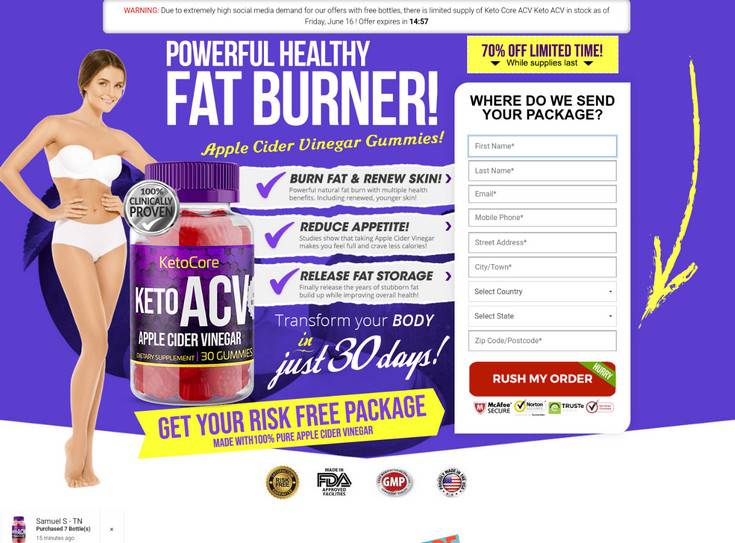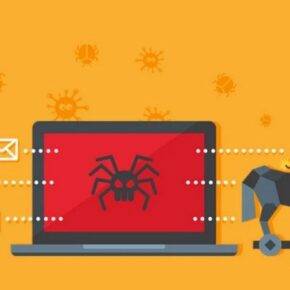The Shark Tank CBD gummies scam is a prevalent con circulating online claiming that various CBD gummy products have been featured and endorsed by the investors on the popular ABC show Shark Tank. However, these claims are completely false according to the show’s producers and cast members. The Shark Tank name is being illegally used by scammers to promote fake CBD gummies and fool consumers into paying exorbitant prices for products that don’t exist.
- Overview of the Shark Tank CBD Gummies Scam
- How the Elaborate Shark Tank CBD Scam Works
- Top Shark Tank CBD Scams Luring Victims
- Spotting Shark Tank CBD Scams
- Consequences of Falling for the Scam
- Steps to Take if You Were Scammed
- FAQs About Shark Tank CBD Gummy Scams
- Anatomy of a Shark Tank CBD Scam
- Have Any Shark Tank Investors Actually Backed CBD Companies?
Scammers fabricate elaborate backstories and advertisements showing fictional entrepreneurs pitching their CBD gummies on Shark Tank and securing massive investments from Mark Cuban, Barbara Corcoran or other famous Sharks. But all of it is make-believe aimed at deceiving consumers who trust recommendations from the high-profile investors on the show. In reality, no CBD gummy product has ever appeared on Shark Tank or received funding from any of the Sharks.
Overview of the Shark Tank CBD Gummies Scam
A prevalent scam circulating widely online claims that various CBD gummy products have been legitimately featured on the popular ABC show Shark Tank and received glowing endorsements and investments from the famous investors on the show.
However, these claims are categorically false according to exhaustive research. There is absolutely no record of any CBD gummy product ever appearing on or receiving funding from Shark Tank, based on public episode guides, company databases, statements from the show’s producers, and explicit clarifications from the Shark Tank cast members themselves.
The Shark Tank name, reputation, and investor identities are being illegally and unscrupulously used to deceitfully market and sell non-existent or grossly overpriced CBD gummies to unsuspecting consumers seeking pain relief and health aids.
Typically, the scammers behind these cons will invent fictional CBD gummy products, creating imaginary brands, formulas, flavors, packaging, and backstories. Then, they fabricate intricate narratives and advertisements claiming their make-believe CBD gummies were recently pitched by budding entrepreneurs on Shark Tank, where they received enormous multi-million dollar investments from one or more of the celebrity investors like Mark Cuban, Barbara Corcoran, Kevin O’Leary, or Lori Greiner.
These completely fictitious narratives are embellished with fake testimony showing the Sharks raving about the revolutionary CBD gummies and their pain relief superpowers. The ads use the real names, images, and purported endorsements of the Shark Tank cast without any consent, aiming to trick consumers by borrowing the credibility and trust associated with these high-profile investors.
In some cases, the scammers photoshop images of the Sharks on set or in the negotiating room purportedly closing the fake CBD deal. Further fabricating legitimacy, they show doctored images of the Shark Tank logo, stage, or intro graphics.
The made-up backstories also involve the phony CBD gummy founders discussing on Shark Tank how their special CBD formula or extraction method sets them apart. Images of the fictional founders and packages are created. Fake news articles and videos may even be made “covering” the supposed Shark Tank CBD deal.
Once this entire fabrication is complete, the scammers build basic websites to sell the sham CBD gummies online. The sites feature all the false claims of Shark Tank investments, celebrate the fake founder stories, and showcase bogus testimonials.
Ads on Facebook, Google, and other platforms direct consumers to these phony sales sites, where they are deceived into entering credit card and personal information to buy the non-existent Shark Tank CBD gummies. In reality, they are subscribing to recurring monthly credit card charges for products that will never ship.
This extremely elaborate CBD gummy scam preys on the immense trust consumers place in the Shark Tank brand. But in fact, no CBD gummy product has ever been associated with the show or its investors. Yet the scammers manage to con even savvy customers with their convincing fake backstories and websites. It demonstrates how the Shark Tank name can be weaponized to build entire fraudulent CBD companies seemingly out of thin air.
How the Elaborate Shark Tank CBD Scam Works
The shameless Shark Tank CBD scam almost always follows the same formula:
- Scammers invent a fictional CBD gummy product with a legitimate sounding name like “Pure CBD Gummies”, “Shark Tank CBD Miracle Gummies”, or “CBD Gummies – As Seen on Shark Tank!”.
- They quickly build a basic website to sell the imaginary gummies, using stock photos and fake testimonials. The site requests credit card information to place orders.
- Fake ads are created claiming the gummies were just featured on Shark Tank and got a huge investment from Mark Cuban, Kevin O’Leary, Lori Greiner or another famous Shark.
- The ads show fake Shark Tank logos and unauthorized photos of the investors. They also include fabricated quotes where the Sharks call the gummies a “miracle cure”, “revolutionary”, or “the greatest CBD ever created”.
- Targeted Facebook and Google ads promote the sham gummies to people searching for CBD products online or those likely to buy from a Shark Tank backed company.
- Clicking the ads leads to the hastily made website, which repeats the false claims of investment and endorsements by the Sharks. Fake testimonials and doctored images add legitimacy.
- When consumers enter credit card information to purchase the gummies, they are actually signing up for hidden monthly subscriptions with ridiculous recurring fees. No CBD gummies are ever shipped.
- Calls to customer service are met with excuses or fake promises of refunds. In reality, it’s impossible to cancel payments or get money back since the whole thing is a scam.
This leaves many victims stuck paying hundreds or even thousands of dollars for CBD gummies that are never delivered. The only product that exists is the fictional Shark Tank story, but that turns out to be dangerously deceptive and convincing.
Top Shark Tank CBD Scams Luring Victims
While new fake CBD brands pretending to have scored deals on Shark Tank pop up regularly, these are some of the top ones to beware of:
Shark Tank CBD Gummies
This is the most prevalent Shark Tank CBD scam online currently. Fake advertisements claim Mark Cuban invested millions in this start-up gummy company. But the product and backstory are completely fabricated.
Kevin Harrington CBD Gummies
Featuring images of Shark Tank investor Kevin Harrington, this widespread scam claims Harrington used his industry connections to secure exclusive rights to an amazing new CBD formula that relieves pain fast. None of it is real.
Barbara Corcoran’s Daily Gummies
Scammers have created fake CBD brands like “Corcoran’s Daily Gummies” that pretend Barbara Corcoran struck a lucrative deal with a widow on Shark Tank. All references to Corcoran and the show are unauthorized.
Daymond John’s CBD Gummy Bears
Intricate ads describe Daymond John teaming up with two college friends on Shark Tank to launch “Daymond’s CBD Gummy Bears” and revitalize their small town. But no such company exists.
Mark Cuban’s Morning CBD Gummies
The popularity of Mark Cuban leads scammers to invoke his name in cons like “Mark Cuban’s Morning CBD Gummies”. The real Cuban has confirmed he’s never invested in any CBD or cannabis business.
Robert Herjavec’s CBD Gummies
Robert Herjavec is another big Shark Tank name used prominently to lend credibility to ploys like “Robert Herjavec’s CBD Gummies”, which scam victims out of millions annually.
Spotting Shark Tank CBD Scams
How can you detect a disingenuous CBD gummy product falsely claiming Shark Tank pedigree? Here are clear warning signs:
- Grandiose claims of lucrative deals with Mark Cuban or other A-list investors
- Unauthorized use of the Shark Tank name and logos
- Fake testimonials with names/images of investors used without consent
- No evidence of legitimate CBD manufacturing or ingredients
- Outrageous claims of CBD cures for severe illnesses like cancer or Alzheimer’s
- Prices much higher than reputable CBD gummy products
- Only available through monthly “free trial” subscriptions
- Inability to cancel recurring charges and obtain refunds
- Major credit card and privacy concerns
Any CBD advertisement invoking Shark Tank or its cast to seem legitimate should be treated as extremely suspicious. And comprehensive research is a must before buying to avoid these scams.
Consequences of Falling for the Scam
If you get tricked into entering payment information for Shark Tank CBD gummies, you’ll likely suffer various financial and privacy-related damages:
– Credit card fraud: Recurring monthly subscription fees will be nearly impossible to halt since the merchants are scammers operating illegally. Hundreds or thousands may be stolen.
– Ruined credit: Being unable to stop the credit card charges can hurt your credit score and history significantly over time.
– Identity theft: Your personal and financial data is at serious risk of being sold on the dark web or used for other types of fraud.
– Privacy invasion: Detailed personal information provided to carry out the scam can be used to steal your identity or expose you to embarrassment.
– No remedy options: Because the CBD sellers are fictitious scammers, you won’t get any assistance, refunds, or product if you complain or try to sue.
This quadruple threat of financial fraud, privacy invasion, lack of recourse, and identity theft is what makes the Shark Tank CBD gummy scam particularly devastating for victims.
Steps to Take if You Were Scammed
If you realize you were tricked into buying nonexistent Shark Tank endorsed CBD gummies and handing over your credit card info, here are crucial damage control actions to take right away:
- Report fraudulent charges – Call your credit card company ASAP to dispute any charges and have new ones blocked. Cancel the compromised card completely.
- Place fraud alerts – Equifax, Experian and TransUnion all offer free 90-day fraud alerts if identity theft is suspected.
- Monitor credit reports – Check reports frequently for any suspicious new accounts or inquiries using AnnualCreditReport.com.
- Freeze credit – Placing a credit freeze restricts access to your credit reports and makes it harder for scammers to open new fraudulent accounts.
- Get help – Talk to your bank about steps to recover lost funds and improve security going forward. They may also offer identity theft insurance and monitoring.
- Warn authorities – File complaints with the FTC, state attorney general, and BBB to have the scammers pursued and shut down.
- Spread awareness – Share your experience online to help prevent others from falling victim to the deceptive Shark Tank CBD cons.
FAQs About Shark Tank CBD Gummy Scams
Have any real CBD gummy products appeared on Shark Tank?
No. There have been absolutely zero CBD gummy products featured on the show, according to extensive public records and confirmation from Shark Tank producers. Any claims to the contrary are falsified.
How can I verify a CBD company’s claim about being on Shark Tank?
Legitimate Shark Tank products will list their episode season and number. Search official episode databases to fact check – any scams will be absent. You can also reach out to Shark Tank representatives directly to confirm.
What if I bought Shark Tank CBD gummies but never received them?
Unfortunately, you’ve been scammed and the “company” will likely disappear soon. Focus on stopping credit card charges and reporting the fraud. It’s unlikely you’ll get any money back or product.
Where can I safely buy CBD gummies online?
Thoroughly research brands, looking for independent lab tests, solid customer reviews, reasonable prices, and transparency about ingredients and manufacturing processes before purchasing anything.
Is it legal for scammers to use the Shark Tank name and investor images?
No. Using someone’s name, likeness, or trademarks without consent for advertising and commercial gain is against the law. But scammers bank on victims not realizing the endorsements are fake.
What should I do if the Shark Tank CBD scammers still charge my card monthly?
Contact your credit card company again and reiterate it is an ongoing fraudulent transaction from scammers. Demand they block all future charges tied to the merchant.
Who can I contact about reporting a Shark Tank CBD scam?
File detailed complaints with the FTC, state attorney general, and BBB. Reach out directly to Shark Tank producers as well so they can take legal action if warranted. Post warnings online.
Have any Shark Tank investors actually backed CBD gummies?
No. All CBD gummies purporting to have gotten investments or endorsements from Mark Cuban, Kevin O’Leary, or other Sharks are completely fabricated scams.
Is it possible to get a refund after being defrauded by a Shark Tank CBD scam?
Unfortunately, you are not likely to recoup any money since the scammers cannot be traced, and any contact information they provided is fake. Focus your efforts on preventing additional fraudulent charges instead.
Anatomy of a Shark Tank CBD Scam
How Do Scams Like Shark Tank CBD Gummies Work?
Scams like Shark Tank CBD Gummies capitalize on the immense popularity of Shark Tank and the booming CBD industry. Here’s an inside look at how these deceptive scams unfold:
Step 1: Fabricated Marketing Claims
Scammers create fake advertisements claiming a specific CBD product was just featured on Shark Tank and got a huge investment from the Sharks. Enticing headlines, descriptions, and backstories grab attention.
Step 2: Fictional Shark Tank Pitch
Elaborate descriptions of a fictional pitch on Shark Tank are fabricated, with details of budding entrepreneurs wooing the investors with their revolutionary CBD gummies. Fake Shark Tank graphics add legitimacy.
Step 3: Deceptive Sales Website
Slick websites mimicking CBD retailers are made to sell the fictional Shark Tank gummies, using fake testimonials and urgings to act fast. Credit card numbers are collected.
Step 4: Lure Victims via Ads
Pay-per-click ads, social media promotions, and search engine visibility drive traffic to the scam sales sites. Discount offers create urgency to buy the gummies.
Step 5: Fake Celebrity Endorsements
Doctored images and false testimonials from celebrities like Oprah Winfrey or Martha Stewart are often used to further legitimize the sham CBD gummies.
Step 6: Recurring Unauthorized Charges
Unwitting customers land on hidden subscription pages that repeatedly charge their credit cards monthly for overpriced gummies that are never shipped.
Step 7: No Assistance or Recourse
Contacts for cancellations, refunds, or support are typically fake or unresponsive. The scammers disappear with the money without sending any actual products.
Step 8: Rinse and Repeat
Before getting shut down, scammers repeat the process with a new fake CBD brand and website to maximize revenue from the deception.
Threats and Losses to Customers
CBD scams pose major threats to customers, including:
- Financial losses from recurring subscription fees
- Fake or contaminated products being shipped
- Ineffective products that don’t contain real CBD
- Health risks if harmful ingredients are present
- Data privacy and identity theft dangers
- Unauthorized credit card charges
- Inability to obtain refunds due to sham companies
- Legal risks if products violate regulations
- Reputational damage and embarrassment
Fraudulent Offers of Free CBD Samples
Free CBD trial offers often hide deceptive scams. Customers pay a small shipping fee to try CBD samples, not realizing the company will keep charging their card exorbitant amounts monthly. Fake return addresses and policies make it impossible to halt the charges, costing victims hundreds or thousands.
The Fake CBD Gummies Shark Tank Case Study
A prime example is the widespread scam involving fake CBD gummies supposedly created by Angela and Yoojin Kim that swindled customers worldwide. Scammers fabricated a story about the sisters making a fortuitous deal with the Sharks. In reality, the Kims didn’t exist, illustrating how easily such cons gain traction. This case highlights the severe financial and privacy consequences victims faced.
Have Any Shark Tank Investors Actually Backed CBD Companies?
Despite CBD’s soaring market share, Shark Tank’s investors have steered clear of CBD gummy deals, wanting to avoid this legally murky industry.
Did O’Leary Ever Invest in CBD?
No. Kevin O’Leary has been very vocal that he has never invested in any cannabis or CBD venture. He cites regulatory uncertainty, risk, and inadequate due diligence as reasons for avoiding the CBD space entirely thus far.
What About Mark Cuban?
Mark Cuban has firmly denied all suggestions that he invested in or endorsed any CBD product, stating clearly that he is not involved in the industry in any capacity. This debunks all fake ads about “Mark Cuban’s CBD Gummies.”
And Lori Greiner?
Like the other Sharks, Lori Greiner has confirmed she has not invested in any CBD companies as of now. Any CBD products bearing her name or likeness are scams attempting to fabricate credibility.
Has Any Shark Tank Investor Backed CBD?
As of 2022, public records show that no CBD gummy product or company has ever received an investment or endorsement from any of the Shark Tank cast members. All claims otherwise are provably false.
The Bottom Line
In summary, Shark Tank CBD scams continue duping consumers seeking trusted CBD sources and pain relief. Guard against giving up credit card information to shady websites peddling these fictional gummies and medically dubious cures. If defrauded, act swiftly to protect your accounts and identity. Further due diligence into investment claims and CBD products is an absolute must.






